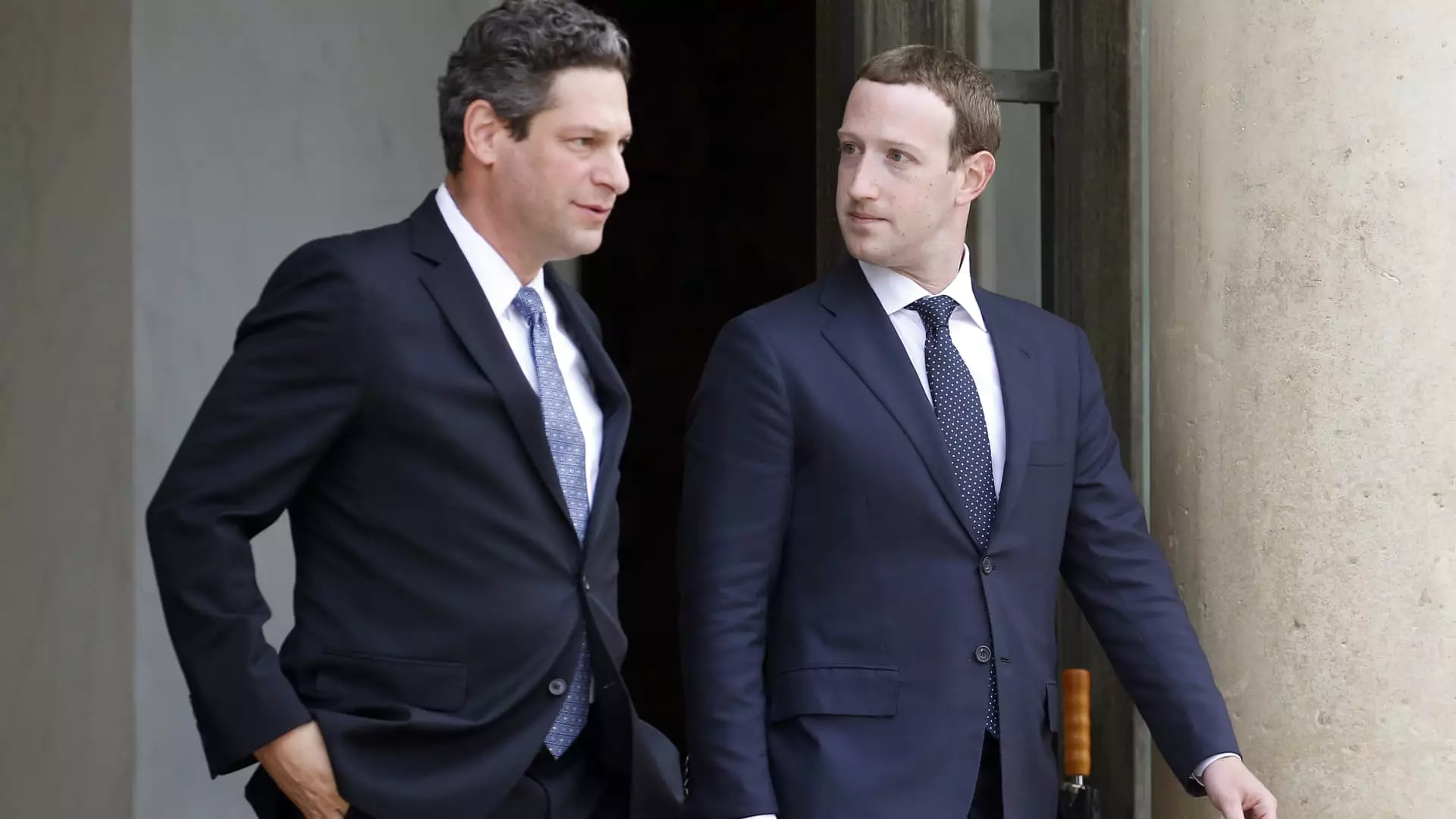In a significant shift within its executive ranks, Meta Platforms Inc., the parent company of Facebook, has announced the appointment of Joel Kaplan as the new Chief Global Affairs Officer, succeeding Nick Clegg. This change takes place at a critical moment just weeks before the inauguration of President-elect Donald Trump and reflects the broader strategic realignment tech companies are pursuing in anticipation of the new political landscape.
Nick Clegg, formerly the Deputy Prime Minister of the United Kingdom and a key figure in the Liberal Democrats, has helmed Meta’s Global Affairs department since 2018. His tenure has been marked by navigating the turbulent waters of public scrutiny regarding the company’s influence on political processes and social issues. Clegg portrayed his departure as a natural transition, framing the new year as an opportunity for fresh beginnings. His resignation is notable especially in light of the mounting pressures that tech firms face, as they adapt to shifting political winds and public expectations regarding accountability and transparency.
Clegg has been instrumental in managing Meta’s public image, particularly in the wake of the infamous Cambridge Analytica scandal, where user data privacy came under intense scrutiny. He has represented Meta in various high-stakes forums, which highlighted the company’s pivotal role in addressing challenges posed by misinformation, privacy, and regulation. His exit, thus, marks not only a personal career shift but also an indicator of the ongoing tension between big tech and regulatory bodies.
Joel Kaplan steps into the role with a distinct legacy shaped by his previous affiliation with the Republican Party and his close ties to Washington politics. Previously serving as Meta’s policy vice president, Kaplan’s experience under President George W. Bush ties directly into the intricate relationship between technology and government. His recent visibility alongside key Republican figures underscores the strategic positioning of Meta within a Republican-led political environment.
With his appointment, Kaplan brings a nuanced understanding of the intersection between technology and policy, making him a suitable candidate to lead Meta’s global affairs. He is expected to engage with both domestic and international stakeholders, especially at a time of heightened scrutiny regarding digital privacy and data management. Kaplan’s background and his relationships could prove advantageous for Meta as it navigates the complexities of a new political era.
Mark Zuckerberg, Meta’s CEO, expressed his appreciation for Clegg’s contributions to the company, illustrating the significance of continuity within the organization. His confidence in Kaplan is visible in the statements made during the transition announcement, suggesting a carefully orchestrated plan to ensure stability as Meta faces ongoing challenges related to content moderation and regulatory compliance.
Zuckerberg’s comments speak to the importance of a strong leadership team, illustrating a recognition that effective public policy engagement is critical to Meta’s future. The collaboration anticipated between Kaplan and David Ginsburg, the vice president of global communications and public affairs, promises a united front in addressing potential criticisms and shaping public discourse around the company’s operations.
The Implications of Leadership Changes for Meta
As Meta navigates this leadership transition, industry analysts will be keenly observing how Kaplan’s leadership style and policy direction will impact the company’s strategy. The evolving landscape of tech governance, highlighted by increasing legislative oversight and public demand for accountability, will pose challenges that require adept navigation.
The appointment also raises questions about the overarching strategy that Meta will adopt as it seeks to rebuild trust among its users and regulators. Kaplan’s connections within the Republican party may herald a more aligned approach with the incoming administration, potentially shifting the tone of Meta’s interactions with federal agencies.
The change in leadership from Clegg to Kaplan signifies more than just a personnel adjustment; it reflects Meta’s deeper strategy to recalibrate its approach amid evolving political and social norms. The company’s direction under Kaplan’s stewardship will likely set the tone for its engagement with broader societal issues, future regulatory frameworks, and the consistent pressures of being at the nexus of technology and governance.

